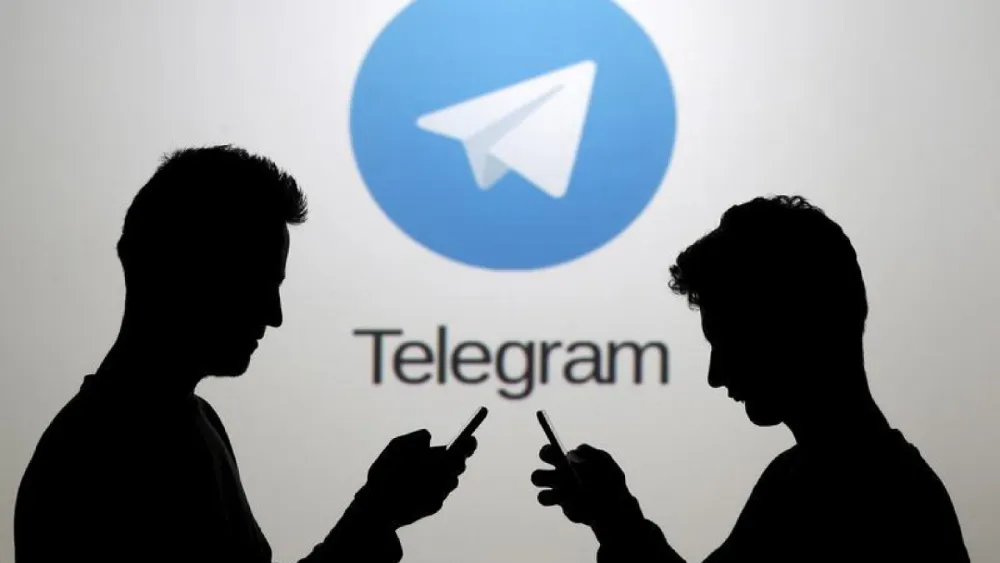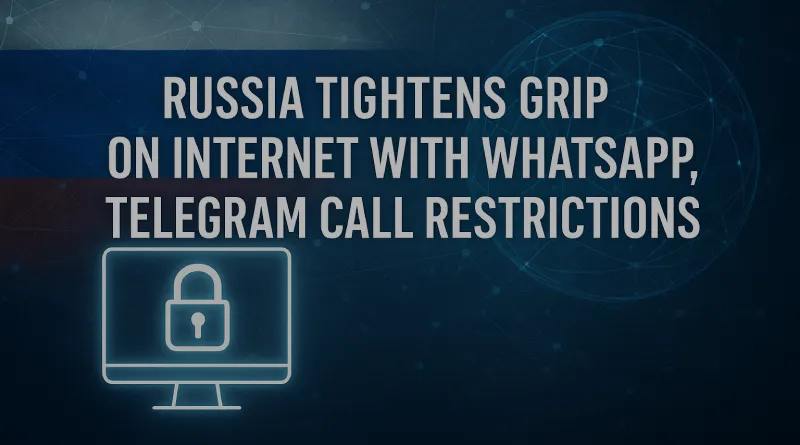Russia Tightens Grip on Internet with WhatsApp, Telegram Call Restrictions
Russia further tightened its grip on digital communication on August 14, 2025, when the restrictions imposed on voice and video calls using two of the most popular messaging services in the country, WhatsApp and Telegram, were tightened. The action, spearheaded by the state communications watchdog Roskomnadzor, accuses the platforms of refusing to provide user information to law enforcers on the basis that they are deployed to commit fraud, extortion, and engage in what it calls terrorist activities. As WhatsApp has more than 96 million active users a month and Telegram is not far behind with 89 million users in Russia, these constraints impact a huge user base and point to an overall initiative of moving towards so-called digital sovereignty. Coupled with the popularisation of a state-sponsored messaging application, this progress casts serious doubt on privacy and surveillance and the future of internet freedom in Russia.
The Rationale Behind the Restrictions
Roskomnadzor defended the ban on the basis that WhatsApp and Telegram are the major platforms of crime such as fraudulent activities and recruitment to sabotage, especially since the Russian invasion of Ukraine in February 2022. The regulator accuses the two platforms of failing to respond to repeated demands of supplying the data of users to law enforcement agencies, hence giving rise to the partial restriction of voice and video calls. Although text messages are not affected so far, users have complained about massive interruptions since August 11, 2025, such as dropped calls, lost audio, and metallic buzzing on WhatsApp phone calls. The Russian Digital Development Ministry further noted that access to the calls will be returned only when or as long as the platforms follow the local laws, i.e., create the legal entities in Russia as well as cooperate with the law enforcement.
The move is in line with Russia’s attempts over the years to tighten internet control. During the last decade, the Kremlin introduced a series of laws that targeted non-compliant platforms, spied on internet traffic, and censored VPNs that could be used to evade censorship. The timing of the restrictions is curious, having occurred one day after President Vladimir Putin had approved the creation of “Max”, a government-controlled messaging program that is supposed to unify government services and supplant foreign platforms such as WhatsApp and Telegram.

The Push for “Digital Sovereignty”
These restrictions are part of the wider strategy pursued by Russia to acquire so-called digital sovereignty, or lessening the degree of reliance on foreign technologies and expanding control at the state level over digital communications. Max, a state-backed app owned by Russian social media VK, is being marketed as an all-in-one messaging, payment and government service solution. In contrast to WhatsApp and Telegram, where end-to-end encryption is a top priority to guarantee the privacy of their users, the terms of Max permit providing the government with the data when required. It is required by a new law to be preinstalled on all smartphones imported to Russia, and state institutions are encouraged to switch communications to the service. The reproaches of critics are that the design of Max makes it possible to monitor people greatly, which may lead to some loss of privacy and even hinder free speech.
The drive against Max comes as Russia banned Meta-run services Facebook and Instagram in 2022. It did it after such businesses were declared an extremist organisation in Russia. However, WhatsApp was permitted to continue using it because it was prevalent; however, it was penalised when it failed to adhere to the requests of data withdrawal. The existing limitations indicate a turning point, and some legislators, such as Anton Gorelink, indicate that WhatsApp might have to leave the Russian market altogether so that Max could take its place.
Local Context and Global Implications
The internet crackdown in Russia has been going on since the war in Ukraine, with such outpourings as turning off mobile internet in occupied territories such as Crimea and fines for those who access illegal materials. The latter is part of the general trend to regulate information movement in the geopolitical tension. The bans of the secure communication apps (WhatsApp and Telegram) triggered the discussion that Russia is destroying digital freedoms, especially since the country accused Ukraine of utilising Telegram in sabotage, and Kyiv answered this accusation with information that Russian intelligence agencies use Telegram to commit acts of terrorism.
The actions made by Russia are heard around the world and are related to the arguments and discussion about encryption and government access of data. Meta, the company that owns WhatsApp, highlighted the importance of end-to-end encryption, saying that it will continue to do everything possible to ensure secure communication is available to people everywhere, including in Russia. Telegram, the messaging service by Russian entrepreneur Pavel Durov, observed that it also utilises AI to eliminate millions of harmful content every day and avoids incitement of violence and fraud. Such responses demonstrate the conflict between the privacy of users and state need, which is currently being acted out in other countries, e.g., the UK, where encrypted messages are also under attention.
What’s Next for Russian Users?
Since the user base of the internet in Russia is 145 million people, the bans interfere with everyday communication by implying the possibility of being electrospied on with state-sponsored services. The transition is likely to transform the Russian digital environment since Max seeks to win users, reporting more than 2 million registrations in July 2025. Nonetheless, low reception of Max implies that incumbents are hard to survive. At least temporarily, they can resort to VPNs or other programmes, but they repeatedly block these. The internet control policies employed by Russia highlight one of the major shifts in finding the balance between security, privacy and freedom in the digital era.
Disclaimer
The information presented in this blog is derived from publicly available sources for general use, including any cited references. While we strive to mention credible sources whenever possible, Web Techneeq – best website design company in Mumbai does not guarantee the accuracy of the information provided in any way. This article is intended solely for general informational purposes. It should be understood that it does not constitute legal advice and does not aim to serve as such. If any individual(s) make decisions based on the information in this article without verifying the facts, we explicitly reject any liability that may arise as a result. We recommend that readers seek separate guidance regarding any specific information provided here.

